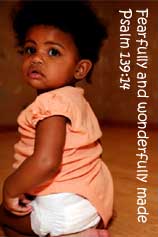
The Wikipedia entry begins as follows:
In Christian theology, divinization, deification, making divine or theosis is the transforming effect of divine grace.[1] This concept of salvation is historical and fundamental for Christian understanding that is prominent in the Eastern Orthodox Church and also in the Catholic Church,[2][3] and is a doctrine of growing importance in certain Protestant denominations, being revived in Anglicanism in the mid-19th century.[1]It would make a great Sunday School lesson to go over the history of the doctrine, and then the various approaches to it that have been taken by different people in the Church. The lesson would start off a little dry, but should pick up.
I would start with the dry part. Theosis as taught in the early Christian Church. I’d just use this section from Wikipedia for a quick introduction.
According to Jonathan Jacobs, there were many and varied appeals to divinization in the writings of the Church Fathers.[5] As what he asserts is “just a small sample”, he lists the following:Ok, I’d add the dates for each of these statements, probably in the lesson footnotes, but not that much more. The meat of the lesson would come next, the various approaches to theosis found in the LDS Church. I would use phrases or labels that would make them easy to remember.
Referring to such declarations by the Fathers, the Oxford Dictionary of the Christian Church says that the central tenet of deification is that, through the incarnation of his Son, God has called human beings to share God’s own life in the Son. It quotes Athanasius: “The Word became flesh … that we, partaking of his Spirit, might be deified” (De Decretis, 14); and Cyril of Alexandria: “We have all become partakers of Him, and have Him in ourselves through the Spirit. For this reason we have become partakers of the divine nature” (In Ioannem, 9).[1]
- St. Irenaeus of Lyons stated that God “became what we are in order to make us what he is himself.”[6]
- St. Clement of Alexandria says that “he who obeys the Lord and follows the prophecy given through him . . . becomes a god while still moving about in the flesh.” [7]
- St. Athanasius wrote that “God became man so that men might become gods.”[8]
- St. Cyril of Alexandria says that we “are called ‘temples of God’ and indeed ‘gods’, and so we are.”
- St. Basil the Great stated that “becoming a god” is the highest goal of all.
- St. Gregory of Nazianzus implores us to “become gods for (God’s) sake, since (God) became man for our sake.”
Saint Augustine pictured God telling him: “I am the food of grown men, grow, and thou shalt feed upon Me, nor shalt thou convert Me, like the food of thy flesh, into thee, but thou shalt be converted into Me.”[9] “To make human beings gods,” Augustine said, “He was made man who was God” (sermon 192.1.1) This deification, he wrote, is granted by grace
First, Baptist Infused Theosis or Biblical Inerrant Theosis
This approach is taken by those who take the Bible as the literal inerrant word of God. I think of them as Baptist infused Mormons since inerrant scripture is a Baptist hallmark. This theosis comes straight from the Bible and taking it literally.
- Romans 8:17. And if children, then heirs; heirs of God, and joint-heirs with Christ; if so be that we suffer with him, that we may be also glorified together. [A "joint-heir" is an heir who has an equal portion, in Romans 8:17 Paul taken literally is saying that we inherit the same portion of glory as Christ and are glorified together with him.]
- John 17:21 where Christ prays that God will make his disciples one with him as he is one with God.
- Romans 6:5 “For if we have been united with him in a death like his, we shall certainly be united with him in a resurrection like his”
- John 8:28 and similar scriptures that say Christ said nothing and did nothing save what he was given of the Father or that God did first.

Hinckley-Johanin Theosis or “We aren’t quite sure.”
This doctrine of theosis stems from John’s doctrines as found at 1 John 3:2:
Beloved, now are we the children of God, and it does not yet appear what we shall be: but we know that, when he shall appear, we shall be like him; for we shall see him as he is.That is a theosis, but states that we, like John, are not quite sure what it means exactly. It fits well with Moroni 7:48 in the Book of Mormon.
48 Wherefore, my beloved brethren, apray unto the Father with all the energy of heart, that ye may be filled with this love, which he hath bestowed upon all who are true bfollowers of his Son, Jesus Christ; that ye may become the sons of God; that when he shall appear we shall cbe like him, for we shall see him as he is; that we may have this hope; that we may be dpurified even as he is pure. Amen.That is more of a theosis in that we are purified through Christ and thereby like God, without much of a definition. It leads us into the next approach to theosis.
Amway-Relativistic Theosis
This is a theosis whereby men partake of the divine nature, but the gap between God and man remains the same — we are, in Amway terms, part of God’s downline. As a result, whatever becomes of humans merely pushes God further up. Given that infinity has densities (cf Aleph numbers), why not eternity?
In this type of theosis, the relationship between God and Man remains the same. No matter what God gives us or makes of us, God retains the same essential distance in relative power and glory, always infinitely ahead of us. It fits the Wikipedia comments.
2 Peter 1:4 explicitly speaks of becoming “partakers of the Divine nature”. Closely allied are the teachings of Paul the Apostle that through the Spirit we are sons of God (as in chapter 8 of his Epistle to the Romans). Paul conceives of the resurrection as immortalization (1 Cor 15:42–49) in conformation to the divine Christ. He also envisions believers as gaining superhuman power over the world, angels, and Satan (1 Corinthians 3:21–23; 1 Corinthians 6:2–3; Romans 16:20). Both immortality and power are constituents of deity. Christians do not become independent gods, but are conformed to Christ’s deity.[4] See also the Gospel according to John on the indwelling of the Trinity (as in chapters 14-17).[1]. 2 Corinthians 3:17–18 says that “we all, with unveiled face, beholding the glory of the Lord, are being transformed into the same image from one degree of glory to another”. In John 10:34, Jesus himself quoted Psalms 82:1 in saying “Ye are gods.”And that leads us to the final doctrinal approach to theosis.
Teach nothing (but repentance)
In the Doctrine and Covenants, God goes on the record several times about avoiding doctrinal speculation and sticking to teaching repentance.
-
Doctrine and Covenants 11:9
9 Say nothing but repentance unto this generation. Keep my commandments, and assist to bring forth my work, according to my commandments, and you shall be blessed. -
Doctrine and Covenants 6:9
9 Say nothing but repentance unto this generation; keep my commandments, and assist to bring forth my work, according to my commandments, and you shall be blessed.

Wrapping the lesson up.
The scriptures talk a lot about Theosis.
What do you believe about Theosis? How do you think we, as children of God, partake of the divine nature and what does it mean? Which of these approaches appeals to you? Why? Do you combine them? Do you reject any of them? As 1 Corinthians 2:9 states: “Eye hath not seen, nor ear heard, neither have entered into the heart of man, the things which God hath prepared for them that love him.”
What do you think God has prepared? Do you think you can really understand Theosis before Christ appears? What do you intend to teach your children about it?
There is a lot to think about when looking at Theosis. Always has been. What do you think?
1 comment:
Stephen, I wrote the following last September about this specific topic:
"As God Is, Man May Become" is a BIBLICAL Concept"
http://thingsofmysoul.blogspot.com/2011/09/as-god-is-man-may-become-is-biblical.html
Post a Comment